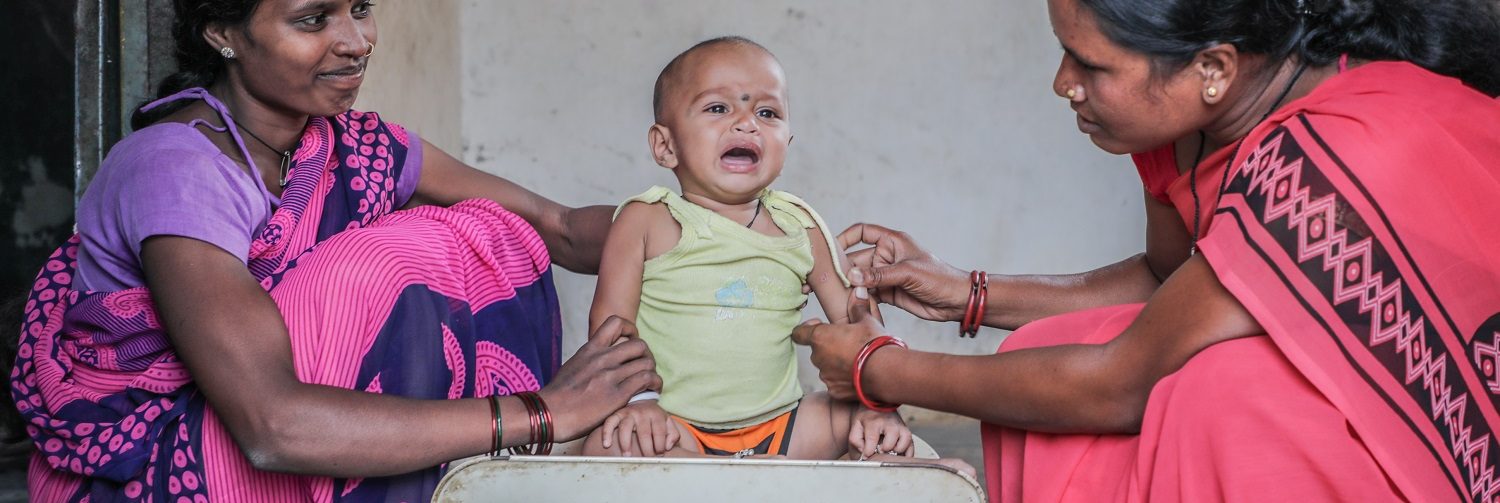Jharkhand, situated on the Chota Nagpur Plateau, in the eastern part of central India, includes 24 districts subdivided into 260 blocks and 32,620 villages, and is home to more than 30 million people (3 percent of the population of India). The state, mostly covered in forests, is rich in natural resources and is a part of the tribal belt of India. Until recently, Jharkhand was a part of the state of Bihar; it became a state under the Republic of India in November 2000 (Government of Jharkhand 2017).
Our knowledge products related to Jharkhand include the following:
- 2022: Read our State Nutrition Profile for Jharkhand (NFHS-3 (2005-2006), 4(2015-16) & 5 (2019-2020), a that describes the trends for a set of key nutrition and health outcomes, determinants, and coverage of interventions from 2006 to 2020. The findings are based on estimates from unit-level data and/or data from national and state reports for NFHS-3 (2005-2006) and NFHS-4 (2015-2016), and data from state factsheets and reports for NFHS-5 (2019-2021). In addition to standard prevalence-based analyses, this State Nutrition Profile includes headcount-based analyses aligned to POSHAN Abhiyaan’s goals.
- 2018: For deeper insights into the coverage of key nutrition and health interventions in the state, with district-wise status, read our Data Note (NFHS-4 (2015-16)) that describes the coverage of a set of key nutrition and health interventions and highlights the key areas of action to improve nutrition in Jharkhand.
- 2017: A Policy Note ((NFHS)-3 (2005-06) & 4 (2015-16)) to examine the trends in undernutrition in Jharkhand, regional variability in the major determinants of nutrition and the coverage of key nutrition and health interventions.
For a deeper view of malnutrition and its multiple determinants in Jharkhand’s districts, please access District Nutrition Profiles (DNPs) for each district below.
District |
Download PDF (NFHS-4) |
Download PDF (NFHS-4 & 5) |
| Bokaro - Aspirational District | English | Hindi | English |
| Chatra - Aspirational District | English | Hindi | English |
| Deoghar | English | Hindi | English |
| Dhanbad | English | Hindi | English |
| Dumka - Aspirational District | English | Hindi | English |
| Garhwa - Aspirational District | English | Hindi | English |
| Giridih - Aspirational District | English | Hindi | English |
| Godda - Aspirational District | English | Hindi | English |
| Gumla - Aspirational District | English | Hindi | English |
| Hazaribagh - Aspirational District | English | Hindi | English |
| Jamtara | English | Hindi | English |
| Khunti - Aspirational District | English | Hindi | English |
| Kodarma | English | Hindi | English |
| Latehar - Aspirational District | English | Hindi | English |
| Lohardaga - Aspirational District | English | Hindi | English |
| Pakur - Aspirational District | English | Hindi | English |
| Palamu | English | Hindi | English |
| Pashchimi Singhbhum | English | Hindi | English |
| Purbi Singhbhum - Aspirational District | English | Hindi | English |
| Ramgarh - Aspirational District | English | Hindi | English |
| Ranchi - Aspirational District | English | Hindi | English |
| Sahibganj - Aspirational District | English | Hindi | English |
| Saraikela Kharsawan | English | Hindi | English |
| Simdega - Aspirational District | English | Hindi | English |
This Data Note describes the trends for a set of key nutrition and health outcomes, determinants, and coverage of interventions. The findings
It is crucial to understand the coverage of nutrition and health interventions to gain further insights into their effectiveness and
Jharkhand, situated on the Chota Nagpur Plateau, in the eastern part of central India, includes 24 districts subdivided into 260

